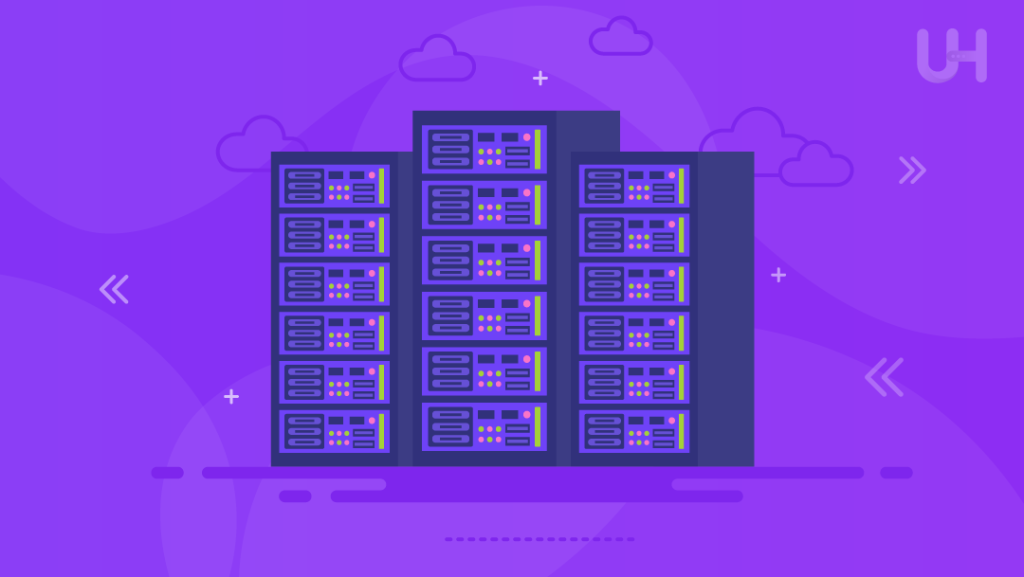A colocation data center is a center where companies can rent space to store their servers and computing equipment. Instead of building an in-house facility, businesses utilize a shared center that offers vital services like electricity, cooling, bandwidth, and physical security. The data center operator takes care of the infrastructure while the business employees utilize their equipment.
This model helps a firm reduce its expenses and complicated requirements related to developing an in-house facility while enjoying a professionally secured environment with great support. Supported with flexible and scalable resources, colocation enables changing requirements of businesses as they grow.
Key Features of Colocation Data Centers
Colocation data centers are designed to provide shared resources that are available to companies through space, power, cooling, and security. Businesses get access to these essentials in a controlled facility. Companies lease the space for their servers and ensure that core infrastructure supports their business continuity. These services include greatly controlled power distribution, cooling systems, and physical security, which enables businesses to focus on their equipment without fear and regard for these fundamental services.
Like all other data centers, these offer customized services for each particular enterprise. Companies utilizing dedicated servers can choose according to the amount of disk space, power, and bandwidth they require and thus find the solution fairly flexible. Redundant infrastructure like backup energy and several network links guarantees maximum uptime. This lessens the chances of downtime and improves reliability for key operations.
Benefits of Colocation Data Center
These also support data redundancy that relate directly to data security. Using a colocation data center gives cost benefits by eliminating major expenditures on building and operating their own facility. Instead of concentrating on developing infrastructures such as power, cooling, and even security, businesses only pay for the space and facilities available. In this manner, the business is able to assess other areas where it can channel its budget usefully.
This also provides ease of expansion and contraction for the organization as required. Sensitive data is protected through advanced measures like physical access control and regulatory compliance standards. Data backups in disaster recovery and continuity of business are supported through colocation. These centers have backup systems with redundancy for business operations to continue uninterrupted in case of sudden disasters.
How Colocation Differs from Cloud and On-Premises Data Centers
Colocation is different from an on-premise infrastructure because businesses lease a portion of a data center, instead of owning their facility. In an on-premise data center, a company takes care of everything including power, cooling, and security. It makes it possible for companies to outsource this work while still having control of their hardware and systems.
Colocation differs from virtual cloud storage which is managed entirely by a provider because with colocation, businesses have control over physical servers and equipment. They manage their own hardware within a shared facility. A lot of companies that require flexibility and performance use a hybrid approach by integrating colocation and cloud services.
Enhance Your IT Infrastructure with Colocation
Learn how a dedicated server can further maximize your productivity and security. With Ultahost, take advantage of fully managed dedicated servers for dependable, scalable solutions crafted to fit your requirements. Start with us today!
Types of Colocation Services
Let’s discuss the types of colocation services:
Wholesale vs Retail Colocation
With wholesale colocation, firms rent large blocks of space or even entire floors or rooms of a data center. This option is suitable for firms with very high infrastructure needs. In retail colocation, smaller spaces like single racks and cages are rented, catering the needs of businesses with much smaller setups or, in fact, emerging needs.
Managed Colocation Services
With managed colocation services, the care provided over the basic level of space and power for the client goes beyond that. The data center vendor can assume responsibility for monitoring, maintenance, and security of the client’s equipment. It provides a way whereby companies can retain some control over their hardware but still receive specialist support.
Hybrid Colocation Models
The hybrid colocation models integrate cloud services with colocation services as one offering. In this model, a business will house its physical equipment at a colocation facility, but utilize cloud resources for some workloads. This provides an option for companies that want to achieve performance and cost optimizations using both physical and virtual environments.
Considerations When Choosing a Colocation Data Center

In regard to the selection of a colocation data center, the location is important. Facilities that are sited adjacent to business operations are more convenient with regards to access and response times. Proximity also improves network latency for data transfers which is crucial for user and application performance.
Network connectivity and latency are extremely critical to enabling fast and reliable inter-system communication. There must be several network connections with no restrictions on bandwidth to the colocation facility so that there can be uninterrupted data flow. Especially for organizations reliant on real time data processing and international operations, low latency is a requirement.
Meeting compliance requirements also necessitates the need for a high level of security and access to sensitive data. An integrated corporate data is required to comply with all relevant industry standards and regulations. In particular, HIPAA and GDPR impose strict security measures at the enterprise level. Limited downtime associated with dependable SLAs ensures the uninterrupted availability of services.
Security and Compliance in Colocation Data Centers
Physical and logical access security controls are implemented very tightly in colocation data centers. Multifaceted systems and procedures control access to the facilities, with the use of key cards and biometric ID scanners, as well as guards. Logically security is taken a step father and video surveillance not only exists but works around the clock scanning for breach signs. Any sign of an anomaly is acted upon immediately, resulting in high infrastructure security.
In addition to physical security controls, stringent measures are placed on data protection and privacy standards. Safeguarding sensitive data requires compliance with legally mandated frameworks, including HIPAA and GDPR, but also other relevant obligations. There is an obligation on the facility to also adhere as to other regulatory frameworks so that clients can safely store their data without legal barriers.
Cost Structure of Colocation Data Centers
Typically charged as an expense of space and power utilization, colocation data centers can be categorized under this model. An organization will pay for physical space occupied by their equipment, which could be rack units or cages, and the power needed to operate their servers. These costs depend with the size of space and amount of electricity needed.
Apart from space and power, additional other services are included as extras and add to the overall expenses. In addition to these, there are also bandwidth charges for data throughput, managed services like monitoring and maintenance, and backup solutions. All these little things add up. So, businesses need to be very careful to what’s included and what’s not.
Relative to other models of IT infrastructure like on-premises data centers or cloud storage VPS services, colocation tends to be economical. On-premises systems entail high capital investments to establish and maintain, while cloud systems have costs that are variable based on usage. Colocation offers a compromise by minimizing upfront investments and providing predictable operational costs, and still offering control over the hardware.
Future Trends in Colocation
Growth in edge computing facilities and the Internet of Things (IoT) are forecasted innovations for colocation data centers. Due to the myriad of devices that the internet is able to connect to, and also the data that is generated by such devices, businesses require computing power closer to the data’s origin. In order to support these requirements, colocation centers are evolving to offer real-time applications by placing facilities at the network’s edge, thereby lowering latency, and improving performance.
An additional emerging trend is improvement of colocation centers into green data centers with green sustainability initiatives. To lower the environmental impact, the majority of colocation providers are using new technology based on energy efficiency and investing on renewable energy sources. Sustainability is now achieved, which aids in meeting the business needs of attaining environmental goals while beneficial from lower energy expenses and a reduced carbon footprint.
There has been an increase in the hybrid and multi-cloud support which is in high demand. Optimization of IT environments in businesses is done using colocation and cloud solutions on-premises. To keep pace, colocation centers are providing more integrated services with cloud platforms which allow companies to leverage physical resources alongside virtual ones. Enhanced flexibility and scalability is provided by this hybrid approach to manage diverse workloads more effectively. For businesses that also rely on secure document sharing and collaboration, using a modern data room alongside colocation ensures both performance and compliance.
How to Transition to a Colocation Data Center
In transitioning to a colocated data center, there are specific migratory strategies and plans that need to be developed. Businesses need to examine their existing systems, decide what equipment and data will stay or be removed, and prepare a step-by-step plan for the migration. This plan has to cater to timelines, resource allocation, as well as coordination with the colocated center for seamless integration of all processes related to the relocation.
During the transition, major challenges such as data integrity and downsized operational downtime must be attended to. There are strict limits to the amount of data movement disruptions a business can sustain during core business operations. Data throughout the process needs to be protected. To ensure smooth deployment, it is crucial to adhere to primary deployment practices, which include pre-departure thorough testing, active engagement of all stakeholders, and available solutions to anticipated challenges.
Conclusion
Modern IT infrastructure is boosted by colocation data centers and what they represent. They represent flexibility and cost efficiency when it comes to housing servers and any sophisticated equipment. The equipment’s power requirements, cooling requirements and security needs can be safely handled by the providers without the clients having the complexities that come with data center management. This paradigm enables widespread operation scaling along with reliable infrastructure.
Focus can be put towards enhancement of business efficiency, operational continuity and also positioning for future growth along with further technological advancement. All of these can be achieved as servicing IT requirements is outsourced. Furthermore, servics level agreements enable seamless adaptation to integrated cloud technologies and strict compliance driven policies while maintaining operational security.
Unlock unbeatable pricing and optimal flexibility with UltaHost’s VPS hosting service, which offers unlimited bandwidth. Enjoy high levels of reliability for your virtual servers supported by our data center infrastructure.
FAQ
What is colocation data center?
A facility where businesses rent space to house their servers, while the data center provides power, cooling, and security.
How does colocation work?
Companies rent rack space for their servers, while the data center maintains the infrastructure like power and security.
What are the benefits of colocation?
Benefits include cost savings, security, reliable infrastructure, and scalability.
Who should use colocation?
Businesses seeking secure, scalable IT infrastructure without maintaining their own data center.
How is colocation different from cloud hosting?
Colocation involves renting space for physical servers, while cloud hosting uses virtual servers managed by a provider.
Is colocation secure?
Yes, colocation centers offer advanced security measures like 24/7 monitoring and access control.
Can colocation provide redundancy?
Yes, colocation centers often offer redundant power, internet, and backup solutions.










